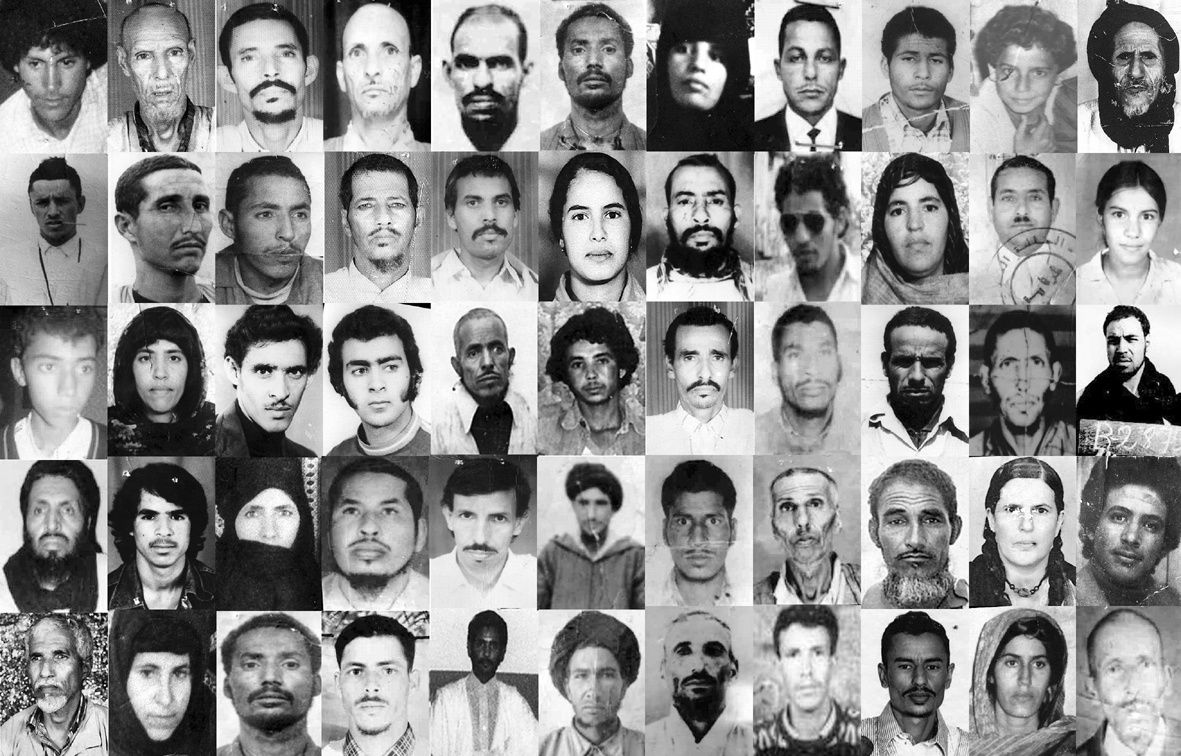ZNet Article:
Past and present in Western Sahara
La disparition forcee au Sahara Occidental
![]() Forced disappearance
Forced disappearance

13th of March 2009 in the office of the World Organisation Against the Torture (OMCT) in Geneva, I finally meet with Dahha who just come from Western Sahara to testify to the situation, to his story. His story is the same as a lot of other sahrawis, but the difference is that he is here today to tell it.
When the interview starts, he goes straight to the point:
"My name is Dahha Rahmouni. I was born in 1968 in El Ayoun. In 1987, the Moroccan police has kidnapped me. I have been tortured. We spent days in a three meters square room. We were sixty persons. We suffered terrible tortures."
From 1975, more than one thousand sahrawis have disappeared in the numerous secret prisons of the Kingdom. Then in 1991, Morocco and Polisario, the front that fights for Western Sahara's independence, have signed a cease-fire that was supposed to be the first step on the way of the referendum.
Dahha spent four years in one of the Moroccan secret prison. Guilty of militating for independence, of being in a meeting or just of being sahrawi, Dahha sum up:
"I have been kidnapped. They took me in a clandestine and secret centre, hoodwinked, and I stayed there without any process or judge until my delivery."

A crime coming from the past? Cicatrices are still there today. First, we ignore the story of thousands of victims of forced disappearance. When they died. How? Where?
Kidnapping and torture appears again few years ago when Binyam Mohamed revelled he had been arrested and tortured in Morocco during eighteen months before his transfer in Guantanamo in 2004 (see Amnesty International)
But Morocco seems to ignore this dark part of his history. "We are the victims, but where are the torturers?"asks Dahha, during Moroccan authorities refuse any recognition of forced disappearance. Today, victims can meet with their torturers in the street without the right of protesting. They have to accept the impunity of the policemen, of the soldiers and other Moroccan leaders.
An impunity that can't stand. So few "children of disappeared" have decided to lay a charge against thirteen Moroccan police leader in front of an international court. In 2007, the Spanish judge Baltasar Garzon has declared this charge as "receivable" (see AFAPREDESA, Association for the Families of Saharawi Prisoners and the Disappeared).
When some sahrawis are talking about genocide, some others are just asking for the Moroccan answer to the only questions: Where is my father? Where is my brother? Where is my sister? Where is my son?
Dahha again: "The truth about the disappearance of hundreds of sahrawis is still hide and the families are still waiting for the bodies."
Such an attitude from Morocco, plus the very serious situation in the occupied territories of Western Sahara where police and army still don't respect Human Rights (see "The illusion of Human Rights") are making the conflict more and more present, eighteen years after the cease-fire and thirty four years after the United Nation's suggestion for the organisation of the self-determination referendum.
